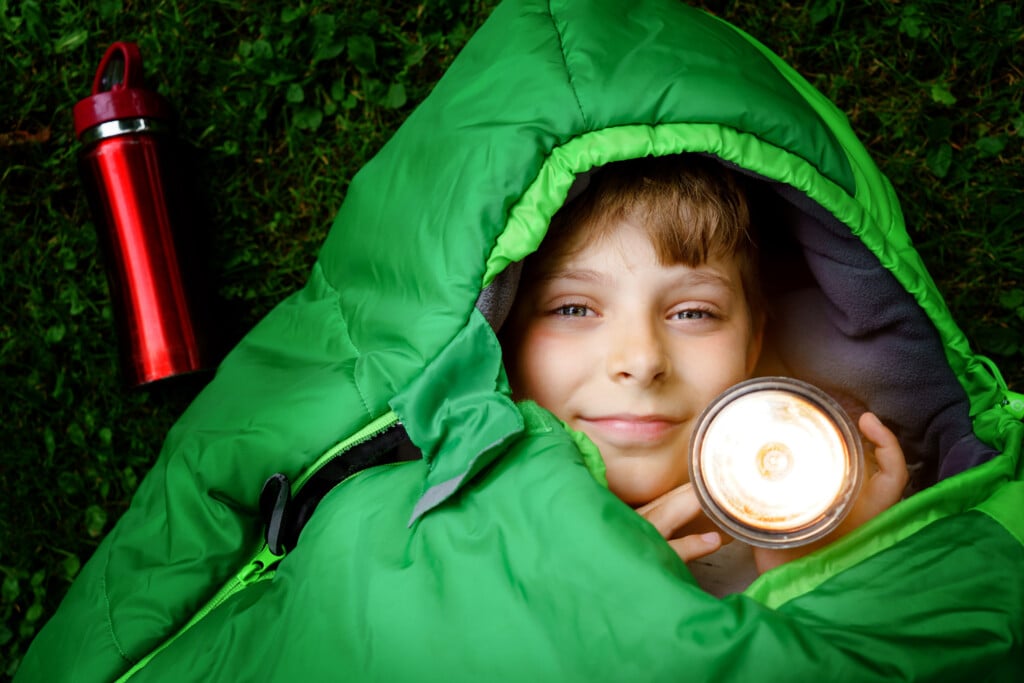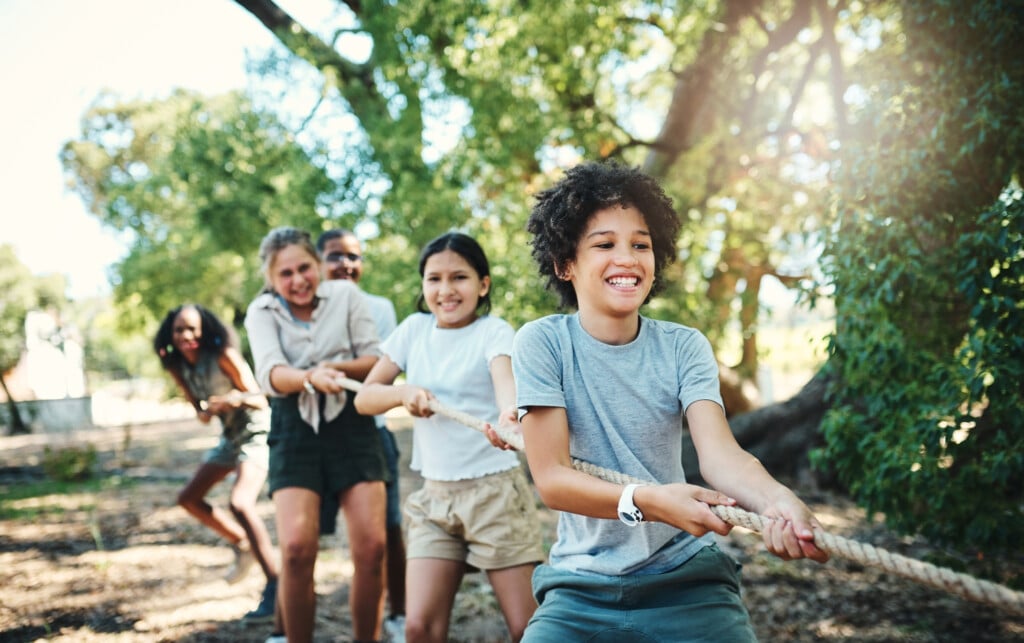Happy Campers: Tips to help kids prepare for their day camp experience

School’s almost out. You found the perfect day camp for your little artist, swimmer or scientist, but you’re worried because camp is unfamiliar territory – or maybe your child could use a refresher. Help prepare your child for what’s ahead with these tips to make their camp experience a positive one.
One, Two Buckle My Shoe: The Basics
- Children should memorize their full name, address and a parent’s cell phone number before camp begins.
- Many day camps require closed-toe shoes, and many activities need kids to get shoes on and off quickly. Practice tying shoelaces; if your little one hasn’t mastered this skill before camp starts, consider a pair of Velcro shoes. Even then, do trial runs until he masters getting shoes on and off in a timely manner. Practice makes perfect!
- Children should be able to zip their own jackets and pants (or wear ones that pull on). Teach them to tie a jacket around their waist, if necessary.
- For half-day camp, apply sunscreen before leaving; children who attend full-day camp should know how and when to reapply.
C is for Cookie: Make Lunch Stress-free
- Packaging often poses a problem for little fingers. Practice opening wrappers and containers at home. Don’t assume camp staff will have time to assist everyone at lunchtime.
- One in 13 children has a food allergy; it’s likely that someone at camp will, too. Swapping snacks sounds like fun, but it’s not safe for many kids. Cross-contamination can pose a big problem for kids allergic to nuts or gluten. Teach children not to share food and to respect other people’s space by not touching their lunchbox and food.
- Stop yourself the next time you start to clean up after your kids. Teach children how to sort trash from recyclables, throw items in proper bins, and most importantly, not to expect adults to clean up after them. Part of being a successful, happy camper is to help out and do their part.
You’ve Got a Friend in Me: Social Skill Essentials
For many first-time campers, enrolling with a buddy helps ease jitters. But it’s important to gain the confidence and skills to make new friends. Review and role-play skills that show openness to making friends:
- Practice how to greet someone new. Make eye contact and smile.
- When someone says, “Hi,” teach your child to reply, even if they feel shy. Not responding may be misconstrued that they don’t want to be friends.
- Remind children to take turns.
- Discuss the idea that not everyone has to be friends—especially if your child is a people pleaser.
Almost There: Be Assertive
- Children should know how (and be willing) to ask for help when needed. If he has a special need, let the camp know ahead of time. Kids and staff can even agree on a signal to get a staff member’s attention.
- Have kids practice politely asking for what they want. Manners go a long way. You’ve taught your child “please” and “thank you.” Remind your child to use these phrases.
- Practice simple, direct responses to communicate dissatisfaction when necessary, such as “I don’t like that. Don’t do it again.” If an annoying behavior continues from another child, ask a camp counselor for help.
Camp is a place to try new things. Explain that they are expected to participate in all activities, and that it’s OK to not do everything perfectly. Children who pout to get their way or who are unwilling to try new things may not be ready for camp. Kids who follow directions and are willing to venture into “new territory” have an opportunity to learn many skills that build confidence and independence.
Cherie Gough is a writer and mom of two who enjoys the enrichment camp brings to her kids’ summer. Find her on IG @cgoughwrites.



